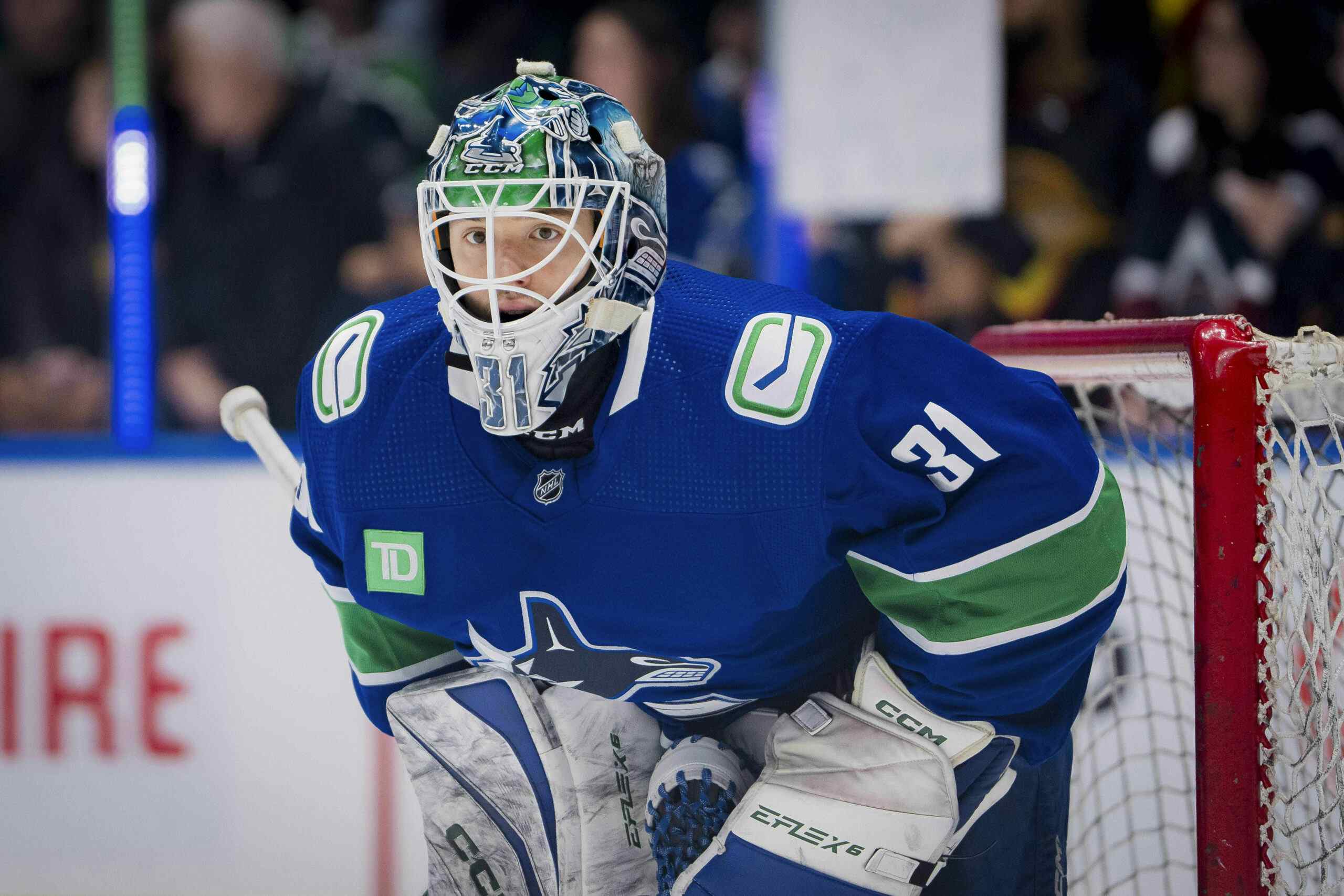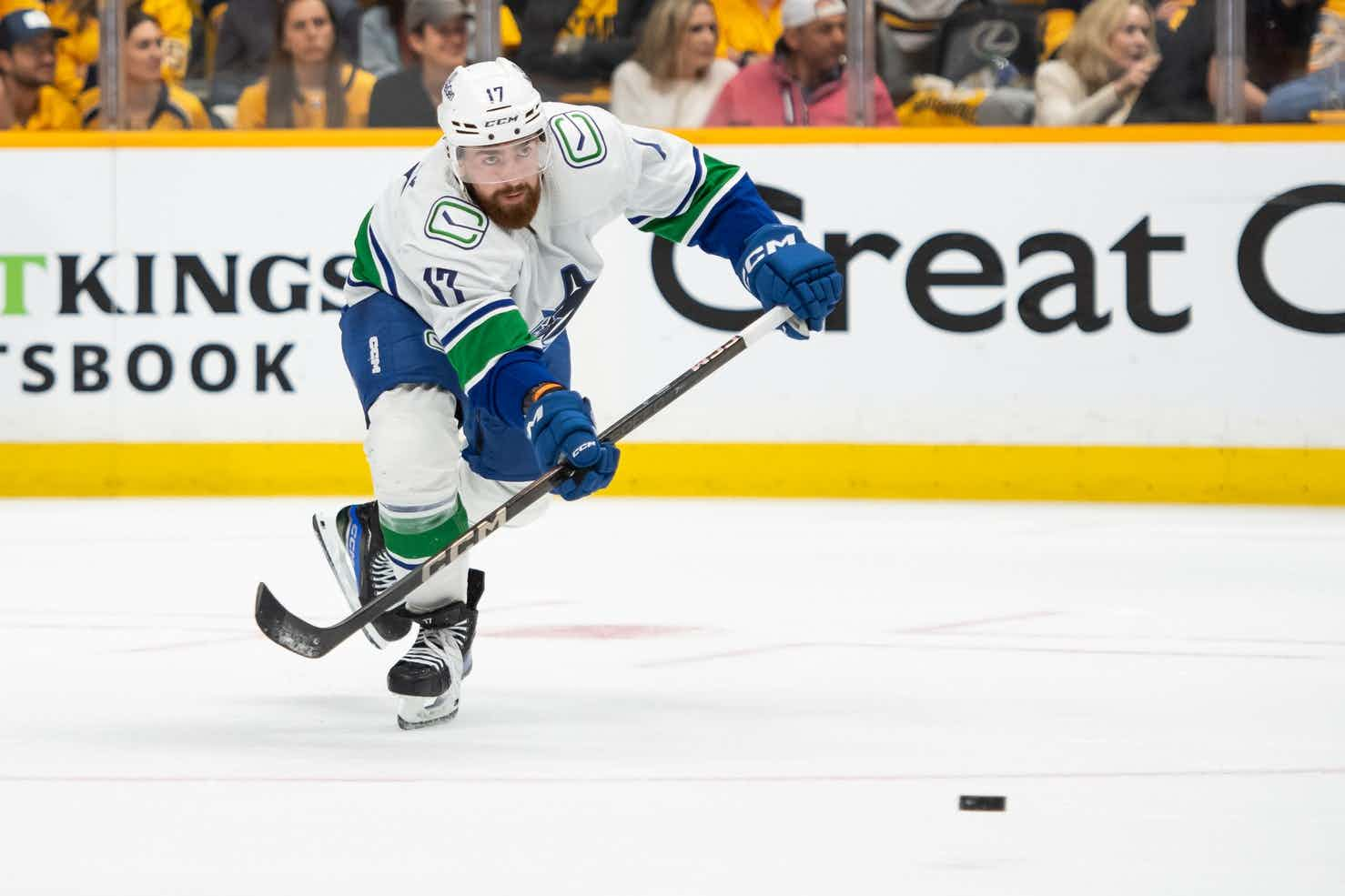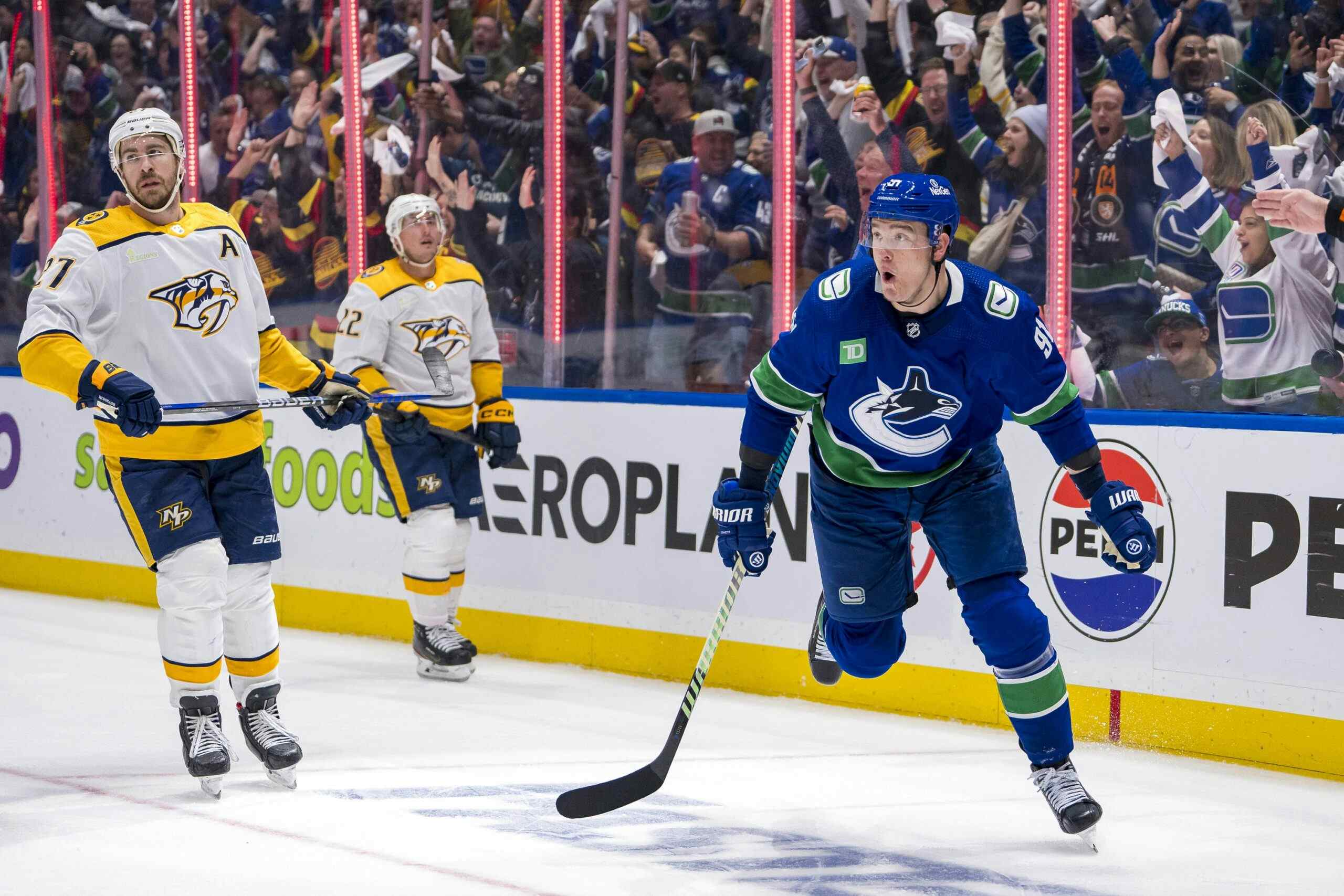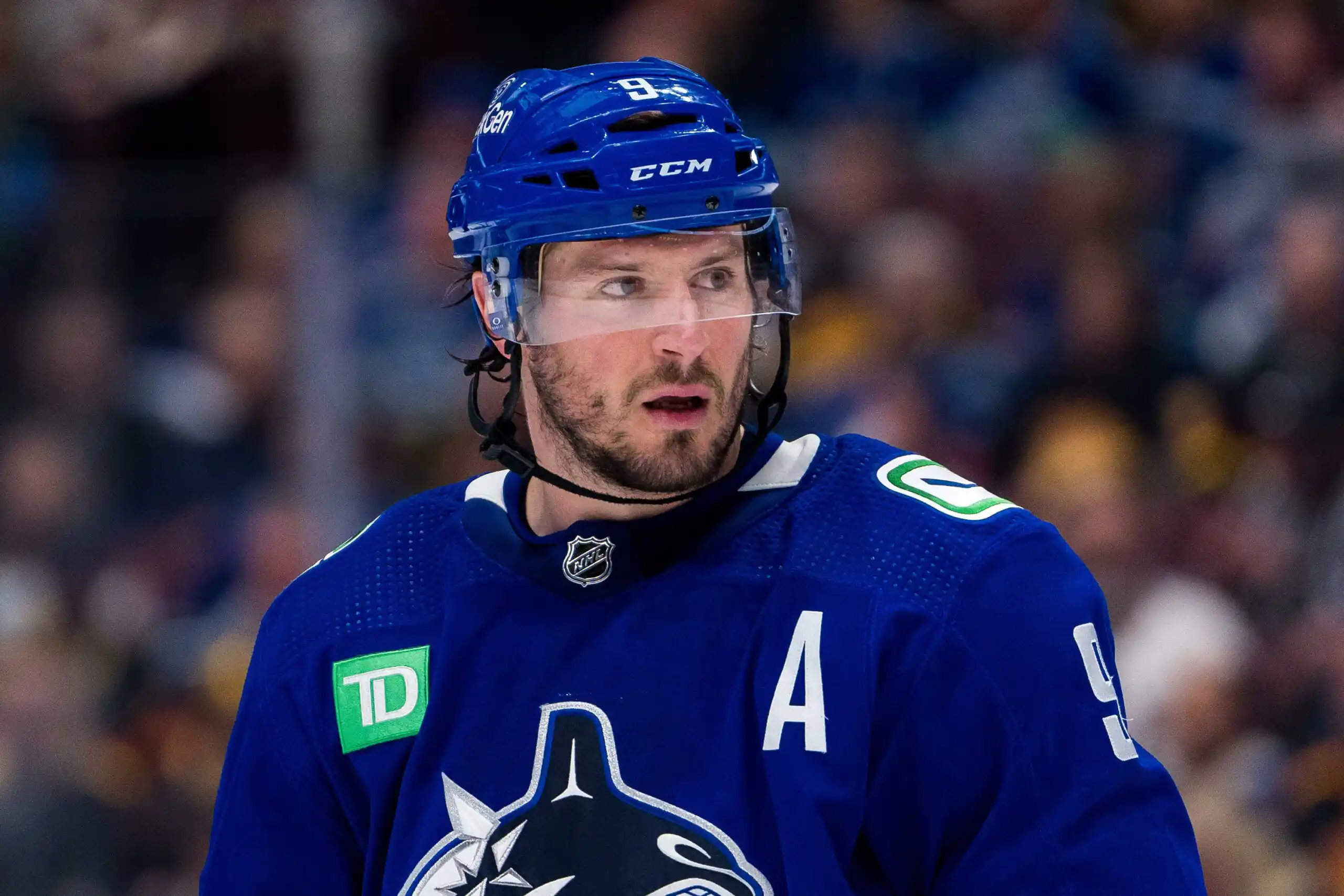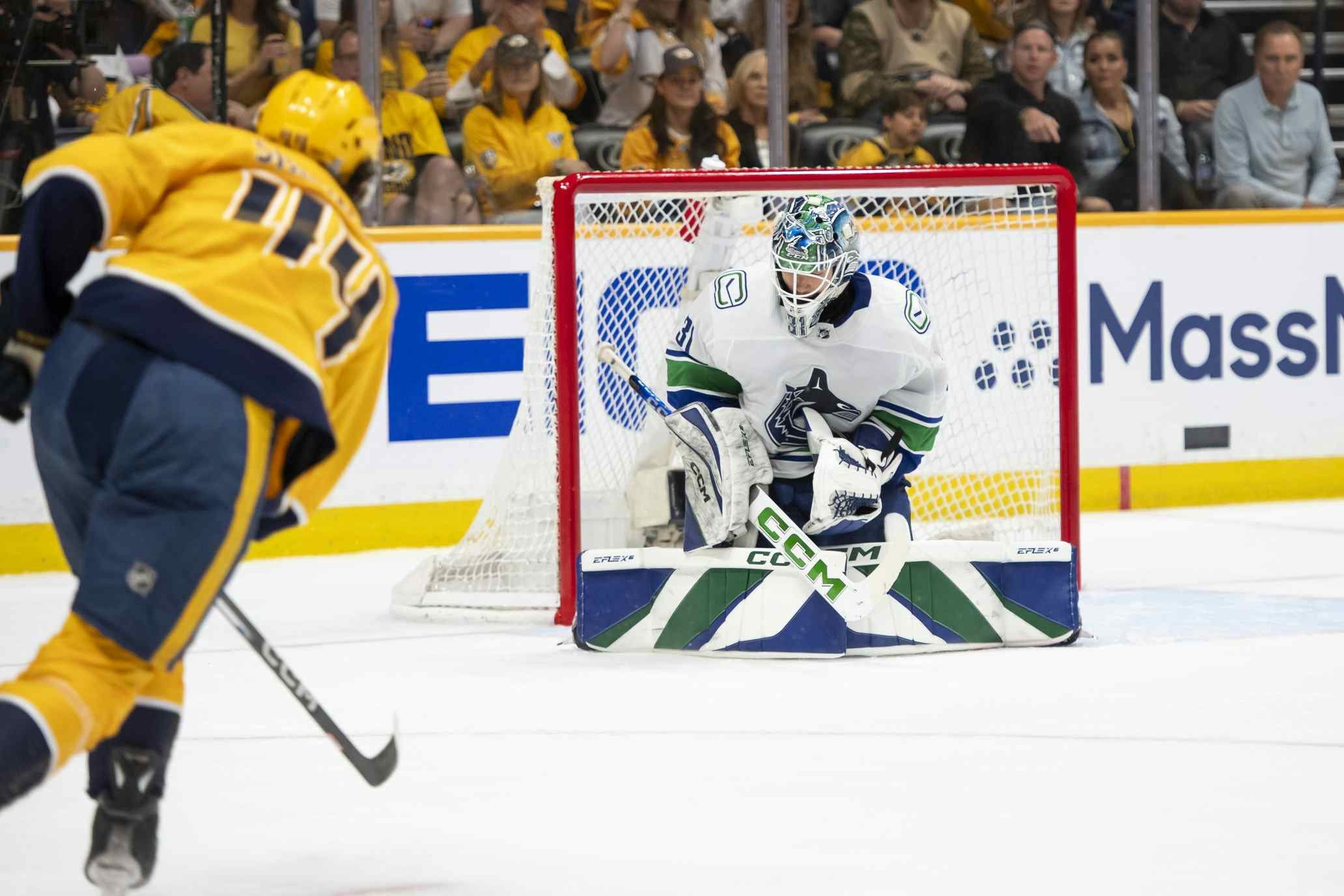Monday Mailbag: Tanev Vs. Stecher, Coleman Vs. Miller, and The Canucks Vs. The Internet

4 years ago
You are preaching to the choir, my friend. I can understand why a person might think Tanev is the better player based on how the two have performed this year, but even if that’s the case, the difference between the two when it comes to ability is very small and the difference between the two when it comes to age is quite significant. I’d be willing to hear arguments that Tanev is the better defender, but it’s a moot point because his age and injury history make Stecher the better option long-term. I really like Chris Tanev, both as a player and as a person, but he’s past his prime and I couldn’t justify committing significant money or term to him at this stage in his career. I would suspect that Stecher could provide, at worst, 90% of what Tanev provides right now at a fraction of the cost, and he’s less likely to suffer a career-ending injury or decline to the point of being a replacement-level defender, so yes, I’d consider him the better option going forward.
Historically, teams haven’t exactly been eager to part ways with their power forwards, so I wouldn’t bet on the Canucks’ being able to land one who is young and cheap without having to give up a boatload of assets. In fact, I suspect that’s why they have interest in Simmonds. He’s clearly lost a step, so they probably aren’t going to have to break the bank to get him. It’s not a route I would go down, but if they’re interested in adding physicality, he’s cheaper than some of the other options available.
I can understand your frustration. Hughes is a fantastic defender from a two-way perspective, which makes him a good candidate to be on the ice when you’re trying to close out the game. Having said that, I don’t think there’s anything too out of line about the way Green has utilized Hughes this year. He’s the team’s second-most utilized defenseman, averaging roughly one minute less per night than Alex Edler, and the team’s most utilized right-shot defender.
You can easily make the case that Hughes should be playing more than Edler, but he’s playing each of them over 22 minutes a night, which is more or less in line with what you’d expect from a team’s top defenders. There are other guys across the league who are getting more minutes, but that’s mostly because their teams are shallow on D and they don’t have a lot of other options. In Vancouver’s case, they have competent defenders, and are justified in using them to give guys like Hughes a break.
I also think it’s important to consider where Hughes is most valuable. I’m sure he can kill penalties, but is that really the role you want to see him in? I’m not against it, per se, but I want to see Hughes on the ice in as many offensive situations as possible because that’s where he really moves the needle. It’s a bit like when John Tortorella had the Sedins killing penalties. They were completely capable, but it wore them out over time, and the team already had depth players that were perfectly fine at killing penalties that couldn’t do what the Sedins could at even-strength and on the power play. In Hughes’ case, I’m fine with him not killing penalties if it means we get to see him in more situations where he can really work his magic, especially on the power play.
He should be closing out games, though. He’s as good an option as any of their other right-handed defenders.
It’s certainly possible. It depends on what his ambitions are, but it does seem like a logical next step after heading a team’s scouting department.
If you were going based purely on who looked better at the time of the draft, you’d take Jack no question, but with the benefit of hindsight, you’d take Quinn. So far, he’s looked like the better of the two.
I love Chris Tanev, but I’m not sure he’s even the best defensive defenseman on the Canucks anymore. He’s been on the decline for the last couple of years.
This is a great question. The truth is that player value is an extremely malleable thing that changes depending on context, so the answer can be yes or no depending on the situation. If you’re simply asking who the better player is, I would take Miller every day of the week. There are factors to consider when determining whether or not Coleman is a better fit for Tampa that muddy the waters a bit, however. The first is that Coleman is on an absurdly cheap deal that pays him $1.8 million for this season and the next, which is
As I alluded to earlier, the Canucks’ best bet is to let Tanev walk in the offseason and re-up on Stecher’s contract. I’m not sure how comfortable I am with Stecher-Myers-Rafferty as the depth on the right side in the long term, but I would vastly prefer it over a big-money, long-term Tanev contract. You could also make a case for dealing Tanev at this year’s deadline, but I don’t think that’s realistic given how much this team has invested in making the playoffs this season.
I would give Brogan Rafferty the best shot of any of the team’s current crop. He’s a shoo-in to be a cheap replacement for either Chris Tanev or Troy Stecher next season given how well he’s performed at the AHL level. Zack MacEwen has a good chance of being on the opening night roster as well, but I’m not sure if you’d call him a prospect. Nils Hoglander and Kole Lind also have an outside shot, but I’d be surprised if they start next season with the big club. It’s more likely that they’d be called up in the event of injury and play well enough to keep their spot.
The biggest and best reason I could give you is that there have been a couple of occasions where it’s turned out to be true. I would present Rhys Jessop’s fantastic article from 2014 about the Canucks’ scouting department as exhibit A, and the various examples of other writers, bloggers, and statsheads across the hockey blogosphere that have been hired by NHL teams in the last decade as exhibits B through Z.
That doesn’t mean that every guy with an internet connection and patreon subscriptions to HockeyViz and Evolving-Hockey is a future NHL employee, however. It’s important to be able to tell the difference between a guy like Ryan Biech, who always had his eye on a job in hockey, and someone who just likes to post (and I would count myself among those in the second category).
At the same time, it’s also important to differentiate between good-faith arguments about how difficult working in sports and sports management can be and appeals to the experience of those with actual experience and elitist gatekeeping. Every insider was once an outsider, as they say.
One big mistake a lot of writers tend to make when they start out is to assume they can do better than the people they write about. It’s unlikely to be true, even if the only reason you wouldn’t be as good is because you haven’t done the networking you need to do to be successful, or you face other kinds of institutional barriers. At some point, you have to earn it by being right about a few things and by making sure your criticism come from a place of integrity. The problem is, some people legitimately can’t tell the difference between someone who is making passionate criticisms from a place of legitimate, well-educated concern and simply being a contrarian.
The truth is, “I’m sure they know what they’re doing” is pretty boring, lazy analysis, and the people who live by that maxim are often former players, many of whom would have never earned an analyst job if not for their status as retired pro athletes. If you actually take the job of analyst seriously and you want to be both entertaining and illuminating, you have to come at it from every possible angle, including being critical.
For me, personally, I like to be a critic because I feel like I see enough back-patting and glad-handing in the national media, but there are definitely people who do nothing but spin every trade, deal, and decision as a negative, too. The difference, at least in my opinion, is in how people go to bat for the status quo. Ray Ferraro isn’t one to mince words when he doesn’t like what the Canucks are doing, but when he defends them he always does a good job, generally by explaining the team’s thought process, using his experience as a player, and breaking down small details a layman might have missed. I think that kind of analysis is great, even if I don’t agree with it. Unfortunately, it’s pretty rare. Although I don’t think it’s any more or less rare among critics or boosters, if I’m being completely honest.

